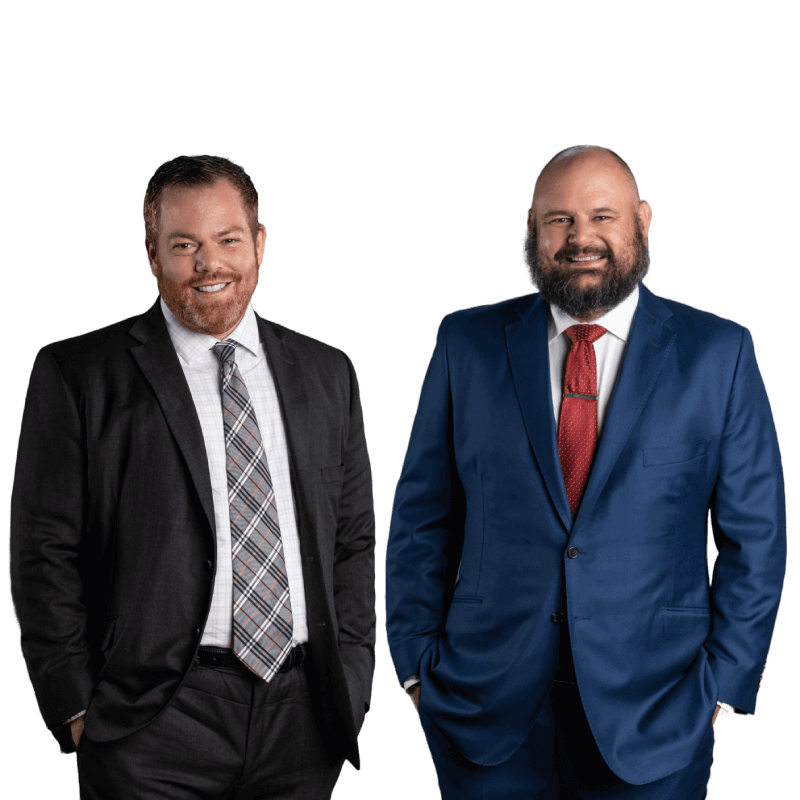Following a trucking accident, you may have many challenges to address. In many cases, you can settle your trucking accident claim out of court. In some cases, however, you may end up in the courtroom to deal with your truck accident claim and pursue the compensation you deserve through a truck accident lawyer.
Now what? What should you expect in the courtroom? How do you know if you have to go to court over your Phoenix truck accident claim? Take a look at these common questions and issues regarding truck accident claims and the courtroom and what you can expect if you go to court over your claim.
When Will My Truck Accident Claim Go to Court?
In most cases, going to court over a truck accident claim serves as a last resort. Settling out of court often offers a faster settlement, and in many cases, you will not increase your compensation significantly by going to court. However, in several instances, you may find it easier to get the results you need if you take your truck accident claim to court.
You and the insurance company remain very far apart in your demands. When your lawyer reviews your truck accident claim, they will take a comprehensive look at all the damages you sustained because of the truck accident, then assess the compensation you should demand based on those amounts. Your lawyer’s assessment will include compensation for your medical bills, any wages you may have lost because of your truck accident injuries, and the pain and suffering you had to deal with after the accident.
The truck driver’s insurance company will conduct its own assessment of the compensation you should expect for your injuries. Often, the insurance company will come back with a much lower number than the one you and your lawyer are demanding.
An initial low settlement offer does not necessarily mean your claim is destined for court. However, if you and the insurance company remain far apart in the damages you should recover for your injuries and cannot agree through negotiation, you may need a court to resolve the difference.
The insurance company tries to deny the extent of your injuries or the challenges you have faced after the accident. In many cases, the insurance company may try to prove that you did not suffer the injuries you claim due to the truck accident or that you do not have the long-term limitations you have listed as part of your accident claim. That may take several forms.
The insurance company may try to show that your injuries occurred at another time. If you have any pre-existing condition, the insurance company may try to claim that your limitations result from that condition rather than from an injury caused by the truck driver. The insurance company may also try to point to other events, including those with nothing to do with the accident, and claim those events caused your injuries. You may have to fight to establish that your injuries were caused by the accident.
The insurance company may try to show that your injuries do not limit you as much as you claim. As part of your accident claim, you may need to establish that you have long-term limitations and challenges related to the damages you sustained in the accident. Many injuries can vary dramatically in severity depending on your body and your natural healing.
Unfortunately, the insurance company may try to establish that you can do more than you claim or that your injuries do not create those specific limitations. As a result, you may have difficulty seeking compensation for your suffering, long-term work limitations, or ongoing medical needs.
The insurance company may try to insist that you do not need the medical care you require after your accident. After a truck accident, you will generally work with your medical care team to establish a treatment protocol and plan that will maximize your odds of a full recovery. You have the final say in what medical procedures you go through, how you handle your therapy, and where you receive treatment for your injuries.
However, follow the instructions issued by your medical care providers. Failing to follow those instructions and do your part to maximize your recovery may result in the insurance company claiming that you have caused your own limitations and do not deserve compensation for care for those ongoing limitations.
The insurance company refuses to accept liability for the accident. In some cases, you may have clear evidence that the other party caused your accident. You may have evidence that lays out how the truck driver caused the accident, including clear evidence of distracted driving or that the driver chose to ignore FMCSA trucking regulations. You may have evidence that the trucking company contributed to the accident by pressuring its driver to engage in unsafe driving practices, including speeding
The insurance company, however, might refuse to accept liability for the accident. Sometimes, the insurance company will try to put the liability on a third party. For example, the truck driver’s insurance company might try to place liability on the trucking company, while the trucking company might insist that the truck driver made the error.
In other cases, the insurance company may try to establish that you caused the accident. In those cases, you may need to go to court to clearly show that the truck driver’s negligence led to the accident and that, as a result, you deserve compensation for your injuries.
Any time you and the insurance company cannot reach an agreement through negotiation, you may end up in the courtroom to settle your claim. Your lawyer can give you a better idea of when settling may be wise and when you should continue to fight for compensation, including when a lawsuit may be necessary.
What to Expect in the Courtroom After a Trucking Accident

When you end up in the courtroom after a truck accident, your lawyer will have the opportunity to present your side of the claim, including any evidence you have related to the truck accident. The insurance company will also have the chance to present its side, including why the insurance company feels that you do not deserve the compensation you asked for after your accident.
Both sides will have the chance to share several key pieces of evidence and critical details that can sometimes make the outcome of the case more predictable.
Evidence Related to the Accident Itself
In most cases, your attorney will start by collecting evidence to establish that the other party caused the accident and that, as a result, you deserve compensation from the insurance company for the injuries you sustained. Evidence related to the accident can help establish liability and support your claim, including:
That the truck driver or trucking company caused the accident. Evidence from the accident scene can help show who caused the accident. Your lawyer may want to share evidence, like video footage from the crash, or expert witness testimony, like accident reconstructionists, to help establish that the truck driver caused the accident.
Your lawyer may also share evidence indicating that the trucking company contributed to the accident. For example, your lawyer might highlight dangerous policies that the trucking company holds that contribute to driver negligence.
Your lawyer may also want to obtain and show:
- Driver logbooks
- Information about the load on the truck at the time of the accident
- Maintenance records
Your lawyer will include all the potentially liable parties that contributed to the accident and the insurance policies available to compensate your claims.
That your injuries occurred because of the accident. As part of your court case after a truck accident, your lawyer will likely have to prove the direct connection between your injuries and the truck accident. The insurance company may try to insist that you suffered your injuries at another time or that you could not have suffered the injuries you claim due to the truck accident.
On the other hand, your lawyer may use expert witnesses, your vehicle damage, and your medical records to show that the truck accident was the cause of your injury.
Evidence Regarding Your Damages
When your truck accident claim has to go to court, you will need evidence to justify the damages you claim.
Your medical records. Your lawyer will collect your medical records and medical bills. You may need to include testimony from a care provider specializing in the type of injuries you sustained or even testimony from your doctor. Your medical records will help establish several key details about your claim and the compensation you request. Your lawyer may show medical records from your emergency room visit, which can help establish that your injuries occurred during the accident.
Next, your lawyer will showcase your bills and medical records to show the extent of the medical treatment needed. Since your medical bills will often serve as an essential foundation for your personal injury claim, you will need detailed documentation of the costs you’ve accrued and will likely accrue for future care.
Finally, your medical records can help show exactly what limitations you suffered from the accident. Your lawyer will want to prove that your injuries have caused the significant losses and limitations you claim and deserve commensurate compensation.
Evidence of your income losses. Your lawyer may also lay out income losses related to your truck accident injuries. In many cases, after a truck accident, you may have to spend a significant amount of time out of work. The more severe your injuries, the more time you may need for recovery. Your lawyer can obtain evidence to lay out your current and future income losses for the judge or jury.
Expert witness, Family, and Friend Testimony. Often, injury claims that end up in court, including truck accident claims, will involve contention regarding the long-term effects of your injuries. While your injuries may impact you daily, the insurance company may try to show that you have little or no long-term limitations related to the accident. You may suffer ongoing pain that prevents you from working or disrupts your relationships, but no physical evidence exists of that struggle.
Your lawyer may bring in an expert witness who can testify about the extent of your injuries and how much they likely limit you, even months after the accident. Additionally, your family and friends can testify to the limitations and negative impacts on your quality of life and mental health.
A Lawyer Can Help Present Your Truck Accident Claim in Court
What you need to present in court after a truck accident often depends on what the insurance company contests. For example, if the insurance company accepts liability for the accident, you may need to focus more on calculating and supporting the losses you sustained.
On the other hand, if the insurance company denies liability, you may spend more time focusing on the accident’s causes and finding evidence showing liability. A lawyer can help present your case in court, increasing the odds that you will get the resolution you deserve.
If a truck accident left you with injuries, losses, and limitations, you deserve adequate compensation. While claims often settle, taking your fight to court may be the only way to ensure you receive fair treatment from the insurance companies. Contact an experienced accident lawyer for the skill and support to take your claim as far as necessary to recover what you deserve.


